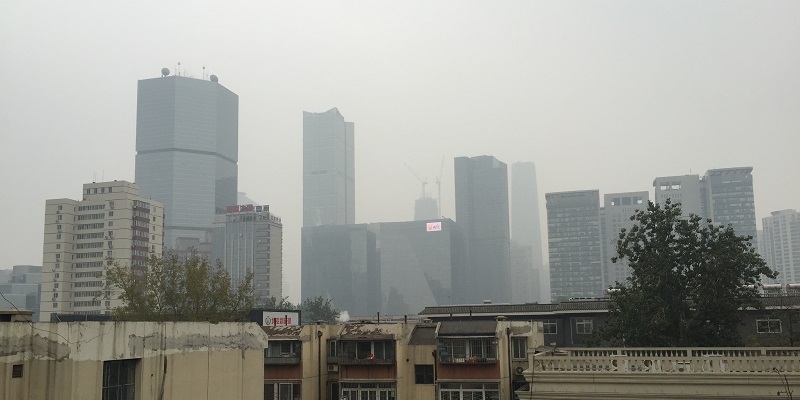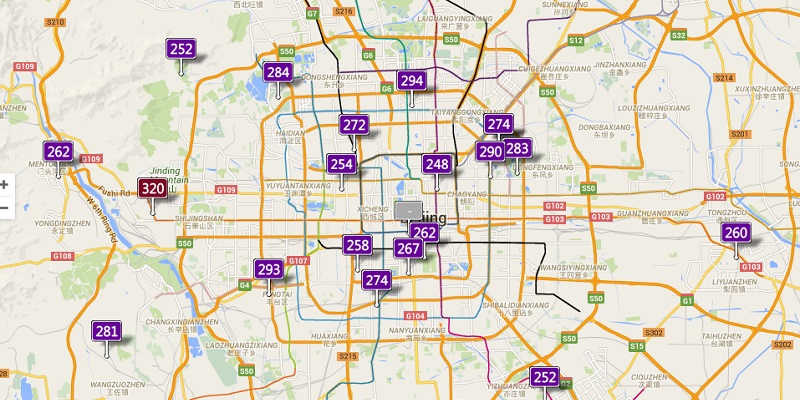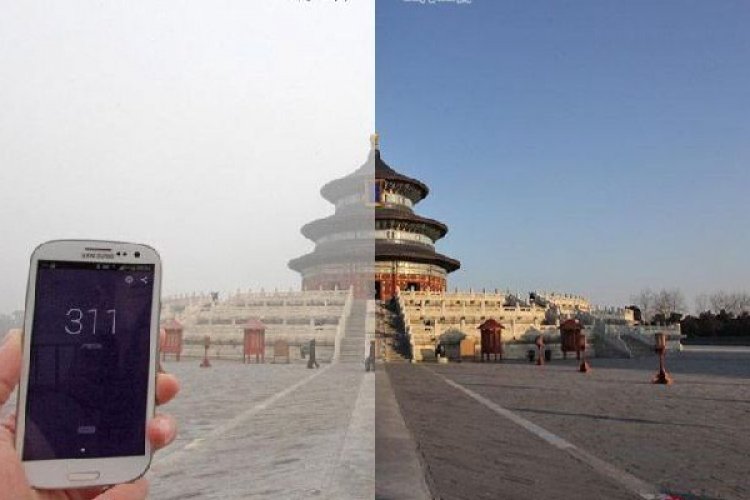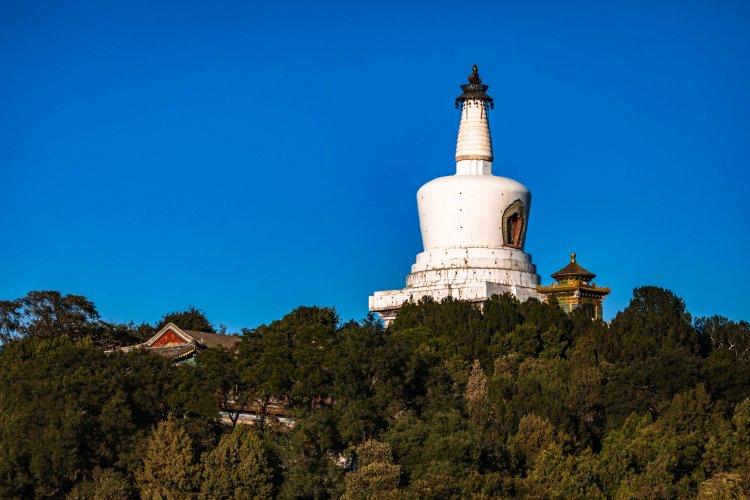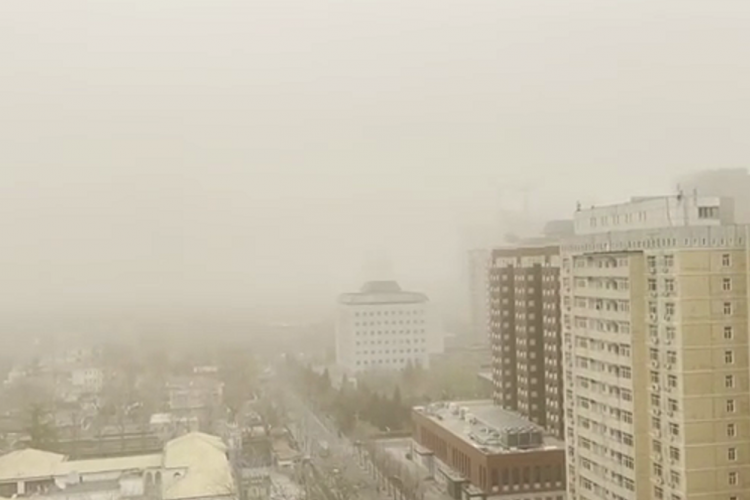Despite What You See Outside Right Now, Beijing's Air Has Shown Exceptional Improvement in '15
This may seem like a particularly bad time to bring this up given the AQI readings have been hovering in the upper 200s all afternoon, but Beijing's air quality has shown "exceptional" improvements for the first nine months of the year, according to environmental watchdog Greenpeace.
Greenpeace was quoted in an Associated Press report from yesterday as saying that NASA satellite data suggests that 2015 has shown a wider improvement over 2014 than any other year-on-year comparison going back for the past 15 years.
"It's not just Beijing or one region," Greenpeace's air pollution campaigner Lauri Myllyvirta was quoted as saying. "It's really widespread reductions in [levels of particulate matter and pollutants] across all of eastern and central China."
That's the kind of air news we like to hear. And when its sources are Greenpeace and NASA rather than the central propaganda bureau, we tend to give it a lot more credibility.
Specifically, the report indicates that Beijing has seen a drop in all major pollutants in the first three quarters of this year (a.k.a. through the end of September), including a 19 percent decrease in PM 2.5 and a whopping 40 percent decrease in sulfur dioxide.
Of course, when you hit rock bottom, it's fairly easy to show improvement, and there's no doubt that Beijing still has a while to go before we start calling its air – fouled by car exhaust, coal burning, industrial pollutants and construction dust – clean.
At least part of the improvement has to do with favorable weather patterns, something even the Beijing Environmental Protection Bureau admits. "People make an effort and the heavens help," AP quoted a bureau spokesperson as saying.
So what exactly are the man-made efforts that have contributed to ever-so-slightly cleaner air? According to the AP, our fair city has been attempting to stem the filthy tide by taking such measures as:
- banning new coal-fired power plants around Beijing;
- lifting caps on fines levied against persistent polluters;
- replacing coal-fired boilers with natural gas-powered facilities (a process that will be 100 percent complete next year); and
- raising exhaust emission standards and forcing older, more polluting vehicles off the road.
We're now headed into the dreaded tail end of the year, traditionally the worst for air quality in our fair city. Let's hope the trend continues.
We here in thebeijinger.com offices are now protected with Blue Air filtration machines in each of our office rooms, so we're safe for the time being during our working day. You're taking precautions, aren't you? Here's some ideas for how to protect yourself.
Interestingly, while awareness of air pollution has certainly skyrocketed here in Beijing (and indeed around China over the past five years), it seems the local populace is not connecting any of this with the issue of climate change.
According to a poll released last week by the Pew Research Center, the citizens of this fair nation we call home are not terribly concerned about climate change.
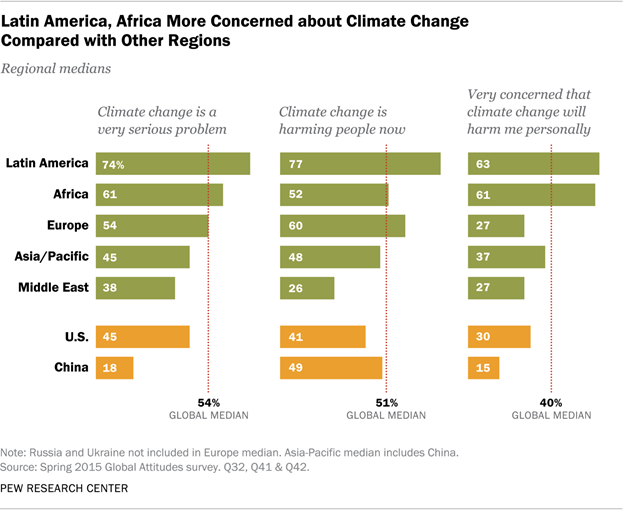
In fact, China came in dead last of 40 countries in terms of the percentage of people who felt climate change was "a very serious problem," with only 18 percent of its citizens saying so.
It also tied for dead last in the percentage of citizens who feel that that global climate change will harm them personally at some point in their lifetimes, with only 15 percent reporting being "very concerned."
And despite what you'd assume, the poll indicates that China has become even less concerned about climate change over the past five years: the percentage of people feeling climate change is a serious problem has dropped from 41 percent in 2010 to a measly 18 percent now.
Whether this year's results are due to increased prevention on behalf of the government or an outlier following to this year's parade and other events, we're happy to receive them, even if it is easy to forget what the color blue looks like on days like today.
Images: aqicn.org, Pew Research Center, Michael Wester

